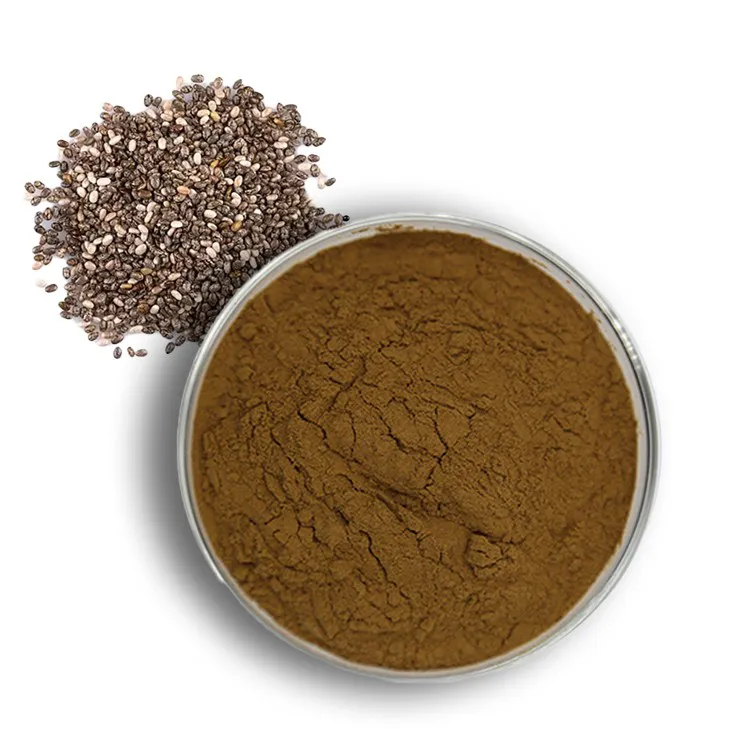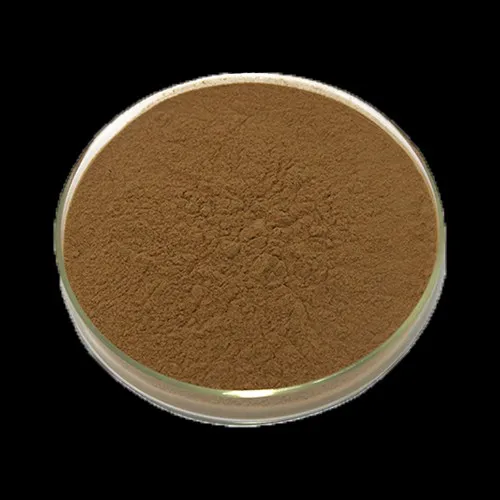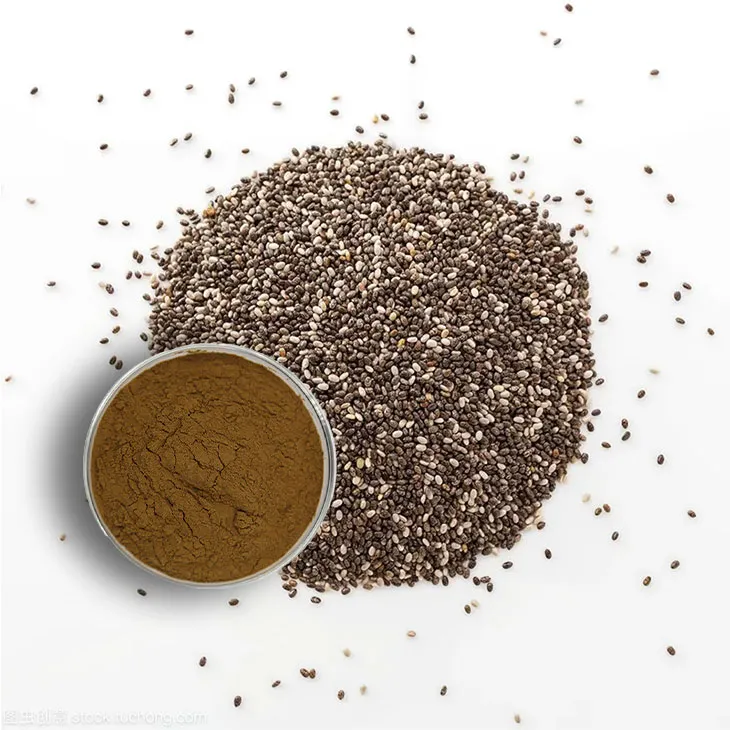- 0086-571-85302990
- sales@greenskybio.com
All about Chia Seed Powder.
2024-12-13

1. Introduction
Chia seeds powder has emerged as a highly sought - after superfood ingredient in recent times. Derived from chia seeds, which have a long history of use in traditional diets, the powdered form offers convenience and versatility in various applications. These tiny seeds, originally native to Central and South America, were a staple in the diets of ancient civilizations such as the Aztecs and Mayans.

2. Origin of Chia Seeds
Chia seeds have a rich history that dates back thousands of years. They were an important part of the diet of indigenous peoples in Mexico and Guatemala. The word "chia" comes from the Nahuatl language, which was spoken by the Aztecs. These seeds were not only a source of nutrition but also had cultural and religious significance.
For centuries, chia seeds were a key component in the local food systems. However, it was only in recent years that they have gained global popularity as a superfood. This resurgence can be attributed to increased awareness of their nutritional value and the growing interest in natural, unprocessed foods.

3. Nutritional Profile
3.1 High Fiber Content
One of the most notable aspects of Chia Seed Powder is its high fiber content. Fiber is essential for maintaining a healthy digestive system. Soluble fiber in chia seeds helps to regulate blood sugar levels by slowing down the absorption of carbohydrates. Insoluble fiber, on the other hand, adds bulk to the stool, promoting regular bowel movements and preventing constipation.
3.2 Omega - 3 Fatty Acids
Chia seeds powder is also rich in omega - 3 fatty acids, specifically alpha - linolenic acid (ALA). These healthy fats are important for brain health, reducing inflammation in the body, and improving heart health. Since the human body cannot produce omega - 3 fatty acids on its own, obtaining them from dietary sources like Chia Seed Powder is crucial.
3.3 Various Minerals
In addition to fiber and omega - 3s, Chia Seed Powder contains a variety of minerals. It is a good source of calcium, which is essential for strong bones and teeth. Magnesium, another mineral present in chia seeds, plays a role in muscle function, nerve transmission, and energy production. It also contains phosphorus, which is important for cell growth and repair.
Zinc, found in chia seed powder, is involved in immune function, wound healing, and DNA synthesis. Iron, which is necessary for the production of red blood cells, is also present in small amounts. These minerals contribute to the overall health - promoting properties of chia seed powder.

4. Uses in Cooking and Baking
4.1 In Cooking
Chia seed powder can be used in a variety of cooking applications. It can be added to soups and stews as a thickening agent. When mixed with water, chia seeds form a gel - like substance, which can help to thicken the liquid in the dish. This is a great alternative to using traditional thickeners like flour or cornstarch, especially for those who are gluten - free or looking for a more natural option.
It can also be used to make chia puddings. Simply mix chia seed powder with a liquid such as almond milk, add some sweetener like honey or maple syrup, and let it sit in the refrigerator for a few hours. The result is a delicious and nutritious pudding that can be topped with fruits, nuts, or granola.
4.2 In Baking
In baking, chia seed powder can be used as an egg substitute. For every egg in a recipe, you can use 1 tablespoon of chia seed powder mixed with 3 tablespoons of water. The chia seed mixture will bind the ingredients together in a similar way to an egg. This is useful for those who are vegan or have an egg allergy.
Chia seed powder can also be added to bread, muffins, and cookies to increase their nutritional value. It adds a nutty flavor and a bit of texture to the baked goods. However, it's important to note that because chia seeds absorb a lot of liquid, you may need to adjust the amount of liquid in the recipe accordingly.
5. Use in Smoothies
Chia seed powder is a great addition to smoothies. It adds a boost of nutrition without significantly altering the taste. When added to a smoothie, it thickens the mixture slightly, giving it a more satisfying texture. You can combine chia seed powder with fruits like bananas, berries, and mangoes, along with a liquid such as coconut water or yogurt, and blend until smooth.
The high fiber content in chia seed powder also helps to keep you feeling full for longer after drinking the smoothie. This can be especially beneficial for those who are trying to manage their weight or control their appetite.
6. Potential Health Benefits
6.1 Aiding in Digestion
As mentioned earlier, the high fiber content in chia seed powder is beneficial for digestion. It helps to keep the digestive system running smoothly, preventing issues such as constipation and promoting the growth of healthy gut bacteria. The soluble fiber in chia seeds can also help to reduce symptoms of irritable bowel syndrome (IBS) in some people.
6.2 Promoting Heart Health
The omega - 3 fatty acids in chia seed powder play a significant role in promoting heart health. They can help to lower triglyceride levels in the blood, reduce inflammation in the arteries, and lower blood pressure. These factors combined can reduce the risk of heart disease.
6.3 Helping with Weight Management
Chia seed powder can be a useful tool for weight management. The high fiber content makes you feel full, which can reduce overall calorie intake. Additionally, the seeds have a low glycemic index, meaning they do not cause a rapid spike in blood sugar levels. This can help to control cravings and prevent overeating.
7. Storage of Chia Seed Powder
To ensure the longevity and quality of chia seed powder, proper storage is essential. It should be stored in an airtight container in a cool, dry place. Exposure to heat, moisture, and air can cause the powder to spoil more quickly. A pantry or a cupboard away from the stove or any heat sources is a good storage location.
If stored correctly, chia seed powder can last for up to one year. However, it's always a good idea to check for any signs of spoilage, such as a rancid smell or a change in color, before using it.
8. Precautions when Consuming
While chia seed powder offers many health benefits, there are a few precautions to keep in mind. Since chia seeds absorb a large amount of liquid, it's important to drink plenty of water when consuming chia seed powder. Failure to do so may lead to digestive discomfort such as bloating or constipation.
Some people may also be allergic to chia seeds. If you experience any symptoms such as itching, swelling, or difficulty breathing after consuming chia seed powder, discontinue use immediately and seek medical attention.
Additionally, if you are taking medications, especially blood - thinning medications, it's advisable to consult your doctor before adding chia seed powder to your diet. The omega - 3 fatty acids in chia seeds may increase the risk of bleeding in some cases.
FAQ:
What is the origin of chia seed powder?
Chia seeds are native to Central and South America. They were an important part of the diet of ancient civilizations such as the Aztecs. Chia seed powder is made by grinding these chia seeds, making it more convenient for various uses.
What are the main nutritional components in chia seed powder?
Chia seed powder is rich in several important nutrients. It has a high fiber content, which is beneficial for digestive health. It also contains omega - 3 fatty acids, which are good for heart health. Additionally, it has various minerals like calcium, phosphorus, and magnesium.
How can chia seed powder be used in cooking and baking?
In cooking, chia seed powder can be added to soups, stews, or sauces to thicken them. In baking, it can be used as an ingredient in muffins, bread, or cookies. It can replace some of the flour or fat in recipes, adding extra nutrition.
What are the potential health benefits of consuming chia seed powder?
There are several potential health benefits. It aids in digestion due to its high fiber content. The omega - 3 fatty acids promote heart health by reducing inflammation and improving blood lipid profiles. It may also help with weight management as it can increase satiety, making you feel full for longer.
How should chia seed powder be stored?
Chia seed powder should be stored in a cool, dry place, preferably in an airtight container. This helps to prevent spoilage and maintain its freshness and nutritional quality. It is best to keep it away from direct sunlight and moisture.
Related literature
- The Nutritional and Health - Promoting Properties of Chia Seeds"
- "Chia Seeds: A Comprehensive Review of Their Nutritional Profile and Health Benefits"
- "Utilization of Chia Seed Powder in Food Products: A Review"
- ▶ Hesperidin
- ▶ citrus bioflavonoids
- ▶ plant extract
- ▶ lycopene
- ▶ Diosmin
- ▶ Grape seed extract
- ▶ Sea buckthorn Juice Powder
- ▶ Beetroot powder
- ▶ Hops Extract
- ▶ Artichoke Extract
- ▶ Reishi mushroom extract
- ▶ Astaxanthin
- ▶ Green Tea Extract
- ▶ Curcumin Extract
- ▶ Horse Chestnut Extract
- ▶ Other Problems
- ▶ Boswellia Serrata Extract
- ▶ Resveratrol Extract
- ▶ Marigold Extract
- ▶ Grape Leaf Extract
- ▶ blog3
- ▶ blog4
- ▶ blog5
-
Pure 85% Tomentil Extract.
2024-12-13
-
Hawthorn powder
2024-12-13
-
Tinospora cordifolia extract
2024-12-13
-
Curcuma Longa Extract
2024-12-13
-
Lotus leaf extract
2024-12-13
-
Dandelion Root Extract
2024-12-13
-
Passionflower Extract
2024-12-13
-
Shikone Extract
2024-12-13
-
Centella Asiatica Extract
2024-12-13
-
Citrus Aurantium Extract
2024-12-13
-
Green coffee bean Extract
2024-12-13





















